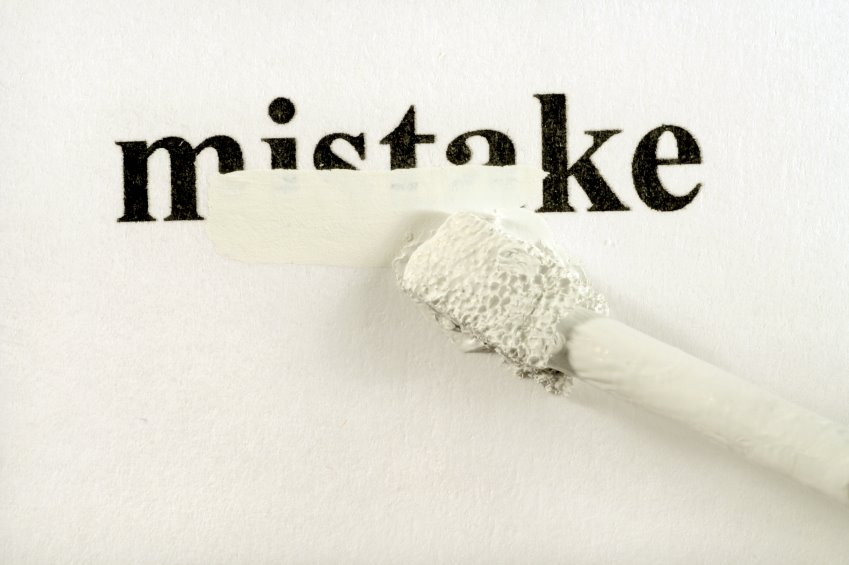 Have you ever said the following: “I tried radio but it didn’t work”? Many buniness owners have that complaint. The fact is radio is just as effective (if not more effective) as any other advertising medium. The reason a spot (commercial) fails is more often due to one or more of these five mistakes given below.
Have you ever said the following: “I tried radio but it didn’t work”? Many buniness owners have that complaint. The fact is radio is just as effective (if not more effective) as any other advertising medium. The reason a spot (commercial) fails is more often due to one or more of these five mistakes given below.
Mistake One: Phone Numbers.
Especially if more than one are given. Now I understand that if your phone number is the ONLY WAY a customer can possibly do business with you then you must have a phone number in your commercial. But for everyone else – phone numbers are a waste of time, which is something you can’t afford to do with just 30 or 60 seconds of commercial time.
Why? Because most people are listening to their radio in their cars or at work. In both cases trying to remember or even write down a phone number is expecting way too much from the listener. And if, as some advertisers do, you have more than one phone number the listener just isn’t going to bother at all.
The best solution is to not give out your phone number at all, but instead offer a very compelling reason why people should seek your business. They’ll find it if they’re interested. Remember there are many ways to find a business’ phone number… phone books, the internet, even calling the radio station (many stations keep lists of current advertisers handy with contact info).
Mistake Two: Price points.
If you think it’s hard for a radio listener to remember a phone number just try adding a bunch of other numbers. I’ve heard many business owners tell me, “Well so what if they don’t remember the prices? This way they’ll know we have a lot of items on sale!”
The problem here is you are again assuming that the listener cares enough to not totally tune out all those price points. That’s a very dangerous assumption. Do you ever hear the radio personalities reciting lots of numbers or price points when they’re talking (outside of reading commercials)? No. Why? Because they know that the typical radio listener expects to hear clear and concise information. Not a lot of numbers that don’t relate to anything.
You’re better off keeping price points in your print advertising where people can take the time to look over all the information. For radio spend your time giving people compelling reasons to do business with you instead of sale prices.
Mistake Three: Confusing locators (the way you describe where your business is located).
“We’re located just a half mile off Interstate 512 in the Gas-Lamp Strip Mall, 2899 West 333rd Street, with convenient free parking four days a week.”
Again, you’re expecting a lot from your listener.
Don’t do lengthy directions. State your location as simply as possible:
“Downtown at the corner of State and Lake.”
“Just off I-512 at the Big Town Exit”
What about street address numbers?
Unless your address can be seen perfectly from at least a half a block away, don’t use it. Most businesses don’t have street numbers on their doors anyhow or if they do it’s so small you can’t read it until you’re right in front of it.
The best solution for a locator? Direct people to your website. You can insert a Google Map or Yahoo Map locator that can give anyone precise details on how to get from where they are to where you are.
Mistake Four: Too many advertising cliches = Major turnoff.
“Friendly Professional Staff”
“Storewide Savings”
“Number One In Customer Service”
“Dependable and Trustworthy”
“The Best Prices”
“We Will Not Be Undersold”
There are dozens more of these tired cliches. Why are they tired? Because you can hear them in radio commercials right now, and if you were to get in a time machine and go back 50, 60, 70 years you’d hear them in commercials from then. They’re worn out because everyone uses them and to most consumers they’re pretty much meaningless.
If everyone is using them then what makes them special? Nothing. If every business is using them then what sets you apart and helps a listener remember who you are? Nothing.
The old adage from Lenny Bruce says it best: “If you have to tell them you’re hip, you’re not.” That holds true for all of those advertising cliches. There is a basic expectation of service from all businesses that includes most of those above cliches. You can’t be in business without meeting those basics, and everyone knows it.
So why waste your advertising time with it?
Instead give people meaningful (personal) compelling reasons to do business with you. And by personal I mean your customer. What are your best customer’s personal reasons for doing business with you? Find that out and talk about that in your commercials. You’ll be amazed at the difference in response.
Mistake Five: Not being convenient.
I don’t mean in terms of hours or location, though those are definitely factors. But more important, does your radio commercial (or any of your advertising) make it hard for people to get what they want?
“Mention this ad for a free can of cheese whiz”.
“Bring in the coupon from last Sunday’s newspaper”.
“The first 12 people to call in the next five minutes get a five percent discount”.
Making people do extra work to get something is only worthwhile if the payoff is incredible (i.e. “The first caller right now gets one million dollars!”). Very few customers will actually care enough to jump through hoops to get a five percent discount or even a 15 percent discount. But more importantly you’re telling the vast majority of potential customers that they have to do something extra besides just showing up at your store. And most people don’t want that extra hassle. What you should be doing is rewarding them equally for showing up. Remember, your customer is doing you a favor by showing up – not the other way around.
Just offer great values and great service to everyone all the time. Also remember, value doesn’t mean low prices. It means CONVENIENCE. All your customers really care about is how fast you can give them what they want and how nice you are about it. As pointed out in Mistake Four – let your best customers tell your story. Nothing compells people to act more than hearing why other people prefer your business over everyone else.
By John Pellegrini
